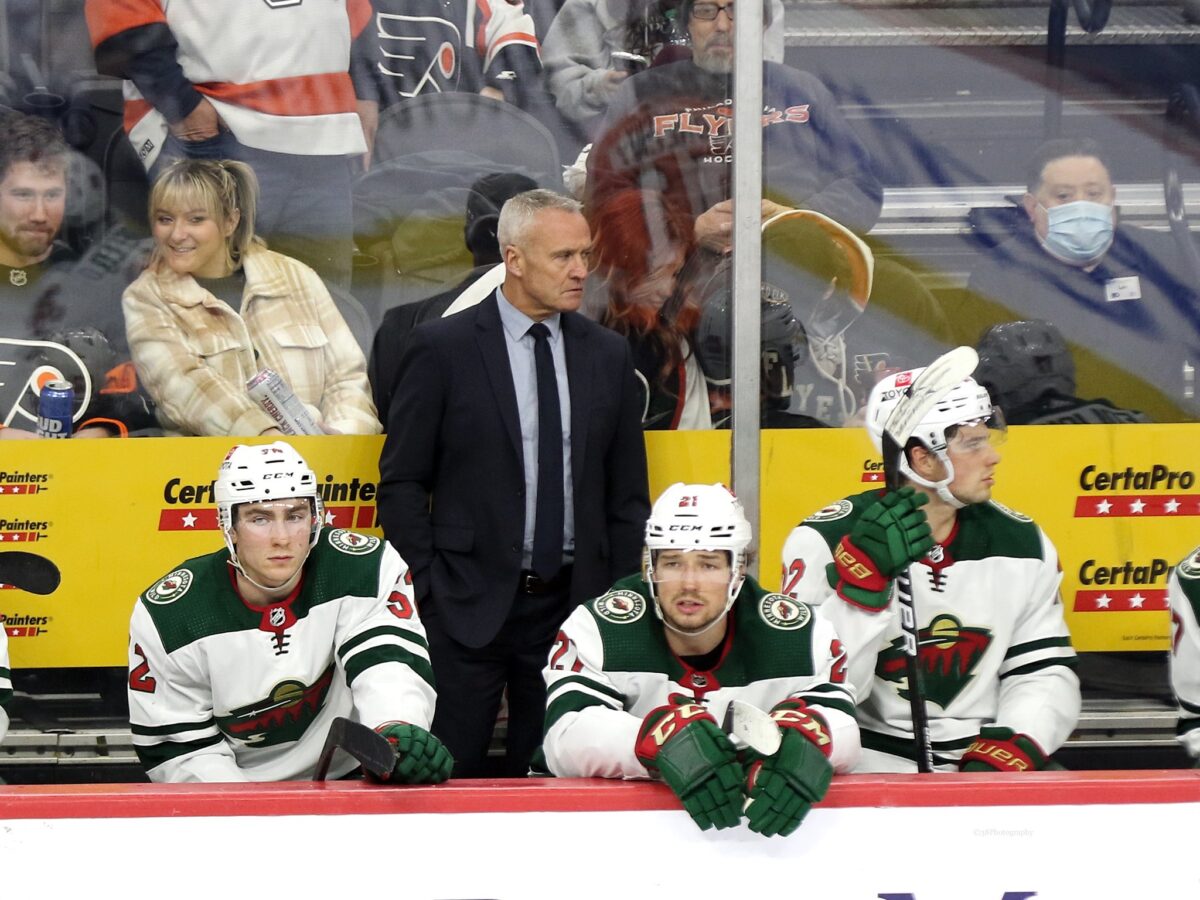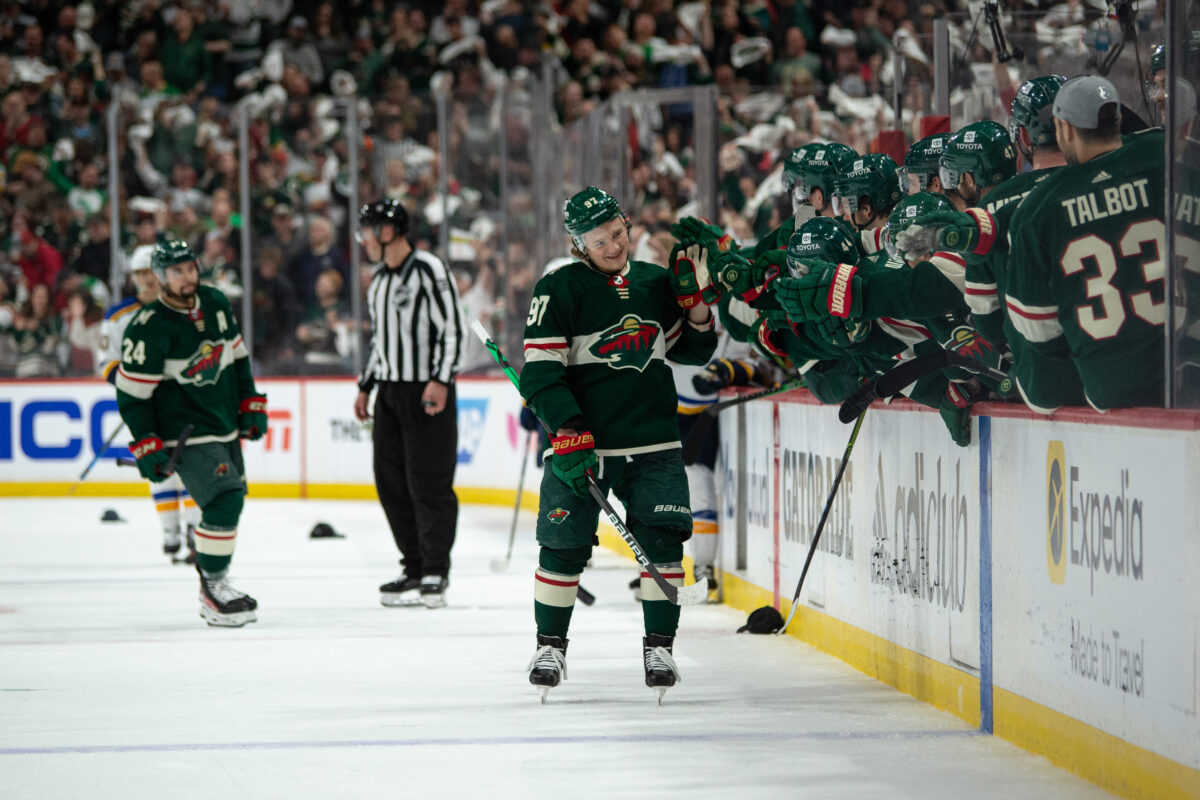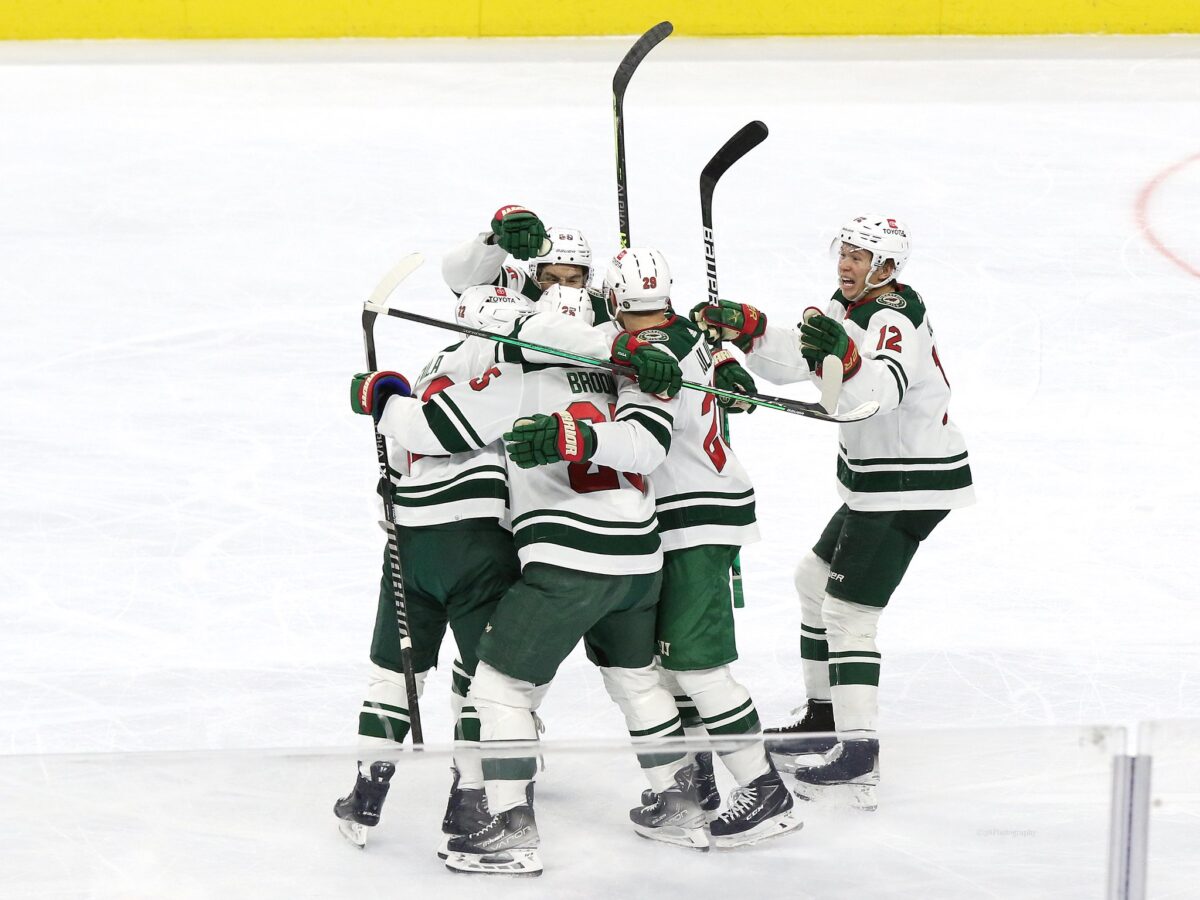For anyone that watched the 2022 Stanley Cup Final between the Colorado Avalanche and Tampa Bay Lightning, they saw a lot of high-energy, entertaining hockey. With how the Minnesota Wild’s season ended, it’s clear there are a number of things they could take away from the Final. Clearly, each team is different in terms of players and talent but there are plenty of technical aspects they can apply to their game plans.
During this offseason, there will be plenty of changes including the recent trade of Kevin Fiala, and the mystery surrounding Marc-André Fleury about whether he’s going to re-sign or not. Plus the other restricted and unrestricted free agents they have who may stay or go before next season starts.
Wild’s Struggle on Special Teams
All season the Wild were up and down on both their penalty kill and power play, as they would have streaks of really great play and even longer streaks of worse play. While watching the Final, one of the things that stood out was the Avalanche’s special teams, specifically their penalty kill. They finished the regular season with an 80.4 percent penalty kill but against the Lightning in the Final, they bumped that percent up to 89.5.
The Avalanche were shorthanded 19 times throughout the series and only allowed two power-play goals to be scored against them. They even tallied a goal while a man down, something that’s difficult to do during the regular season let alone in the playoffs. What made their penalty kill work so well that the Wild could incorporate into their play in 2022-23?

The Avalanche formed a box and they would consistently cycle around depending on what opposing player had the puck, but also take note of where the puck was headed. That was something the Wild struggled with all season; often times they’d get too caught up following the puck and forget there was an open player behind them. The Avalanche had a slightly more aggressive penalty kill tactic and used both their sticks and bodies to get in the way of the puck.
If the Wild can improve their all-around coverage on the penalty kill, that would be a big help especially after giving up 63 goals while shorthanded during the regular season, which was third-most in the NHL. Plus being a little more aggressive could do wonders as well.
Wild’s Offense Could Improve
After having eight players tally 40 or more points including Kirill Kaprizov’s 108 points, it doesn’t seem like the Wild’s offense needs to improve, but it does especially when it comes to the postseason. They scored 305 goals throughout the regular season to snatch a fifth-place spot in the league but when it came to the playoffs, they scored just 16 times in six games. In 20 games, the Avalanche scored 85 times and the Lightning came in second with 67 goals scored but in 23 games.

Even if the Wild hit 20 games in the postseason, unless their scoring took a dramatic upswing, they wouldn’t have touched the numbers the Avalanche did. In fact, they wouldn’t have even hit the Lightning’s number. While the Lightning didn’t win the Cup, they showed a side of in-your-face offense the Wild could use. They also focused a lot on stretch passes, which helped when their forwards snuck behind the opposing defense.
The Wild performed passes like that a bit throughout the season but could’ve been more successful in the postseason if they had completed them. They need to force their offense on other teams and not pass too much like they’ve gotten stuck doing in the past.
Wild’s Defensive Blocks Need Help
Again, during the regular season, the Wild were in the top half of the league for blocked shots with 1,115. However, when the playoffs hit, they had the least blocked shots with 83 in six games. Both the Avalanche and Lightning did quite well in this area in the postseason. The Lightning stole the show blocking show, but the Avalanche were obviously able to sneak by and steal the Cup, as the Lightning had an eye-popping 413 blocks in 23 games.
Related: What the Wild Lost and Gained in the Fiala Trade
When it comes to the playoffs the Wild have to find that extra step, especially on defense, and not be afraid to throw their bodies in front of everything and use their sticks a lot more. Similar to their penalty kill issues, they have to be more effective with the use of their sticks to poke-check the puck as much as possible. That’ll also give them more takeaway opportunities.
Wild’s Overall Lessons
Improving their penalty kill, being more aggressive on offense, and working on their blocked shots are all things the Wild could learn from both the Avalanche and the Lightning. Obviously, the Wild don’t have that complete team game, but they had glimpses of it during the season; it just wasn’t consistent. If they can focus on adding these things to their game, they may have a better shot at making a deep run next season.

Clearly, some other things need to happen to make that dream a reality, but they’ve got some of the pieces already in place. Something not included in the list above is goaltending. Both the Avalanche and Lightning had some stellar goaltending – even the Avalanche’s backup Pavel Francouz stepped up big in Darcy Kuemper’s absence. The Wild have reliable goaltending most nights, but that’s also an area to improve, however, it’s not as easy as adjusting to a new game style. Great goaltenders don’t just grow on trees, so they may have to just deal with what they currently have.
The Avalanche were a consistently strong team all season and that’s what the Wild have to strive for. They’ve got the talent, they just need to be steady and add in these lessons from the two teams that made it all the way to the Final, and maybe they’ll be the next ones to raise the Cup.
